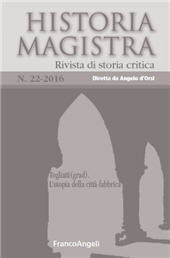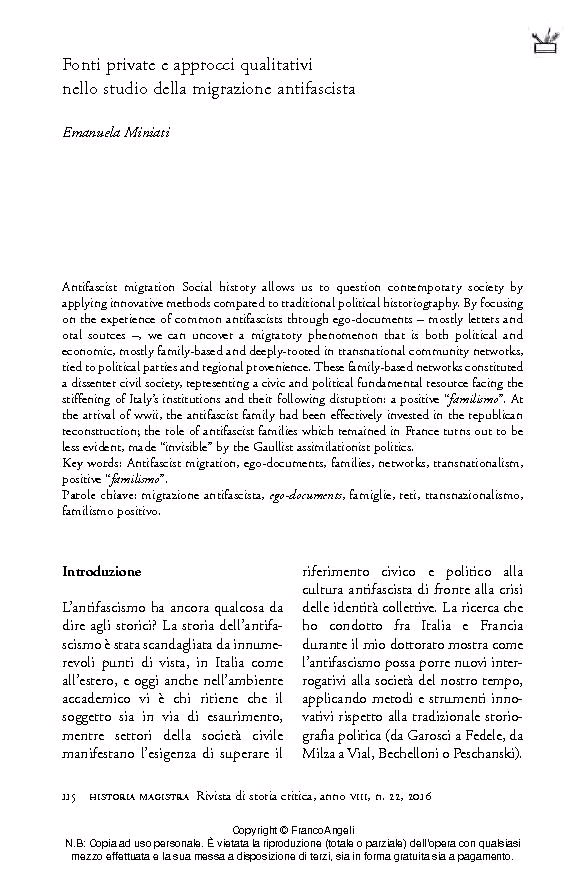Fonti private e approcci qualitativi nello studio della migrazione antifascista
115-128 p.
Antifascist migration Social history allows us to question contemporary society by applying innovative methods compared to traditional political historiography. By focusing on the experience of common antifascists through ego-documents - mostly letters and oral sources -, we can uncover a migratory phenomenon that is both political and economic, mostly family-based and deeply-rooted in transnational community networks, tied to political parties and regional provenience. These family-based networks constituted a dissenter civil society, representing a civic and political fundamental resource facing the stiffening of Italy's institutions and their following disruption: a positive "familismo". At the arrival of wwii, the antifascist family had been effectively invested in the republican reconstruction; the role of antifascist families which remained in France turns out to be less evident, made "invisible" by the Gaullist assimilationist politics. [Publisher's Text].
Fait partie de
Historia Magistra : rivista di storia critica : 22, 3, 2016-
Articles du même numéro (disponibles individuellement)
-
Informations
Code DOI : 10.3280/HM2016-022009
ISSN: 2036-5071
KEYWORDS
- Migrazione antifascista, ego-documents, famiglie, reti, transnazionalismo, familismo positivo
- Antifascist migration, ego-documents, families, networks, transnationalism, positive "familismo"



